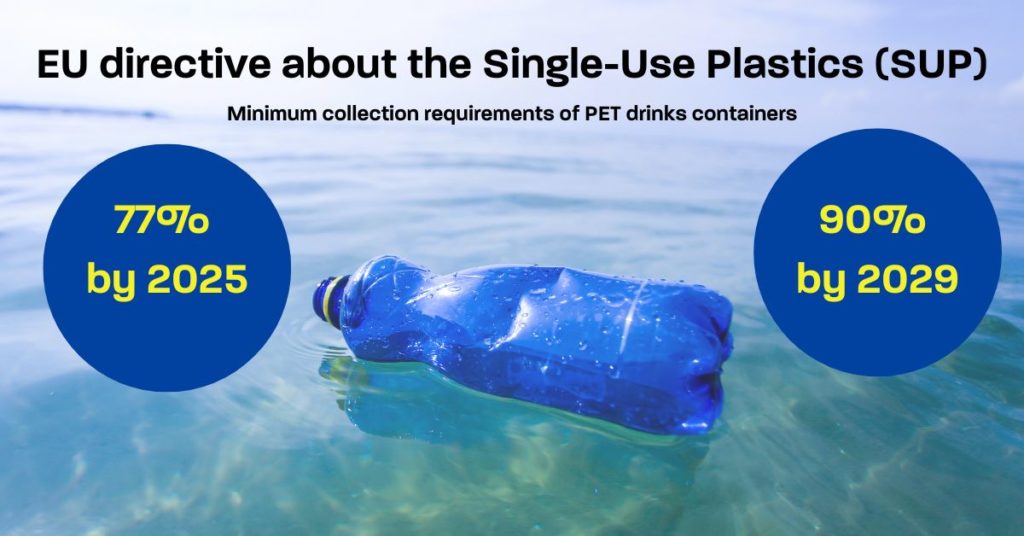European Court of Auditors issued a paper with the suggestion that the legally mandated introduction of DRS for PET drinks containers in every EU member state can be a crucial tool to reach the minimum collection rates set by the Single-Use Plastics directive (77% by 2025 and 90% by 2029).

Consultancy company McKinsey claims that by 2050 nearly 60 percent of plastics production could be based on recycling and reuse of plastic.
More well-designed and functioning Deposit Return Systems could without a doubt help to improve the rates of recycling of secondary raw materials coming out from the non-alcoholic beverage industry. That is why NMWE (Natural Mineral Waters Europe) and UNESDA (Union of European Soft Drinks Associations) proposed a set of 6 fundamental design criteria that will improve DRS efficiency when setting them up in EU Member States.
South Korea, one of the most innovative countries in the world when it comes up to recycling, even introduced a deposit system for coffee cups and takeaway food containers. South Korea’s Ministry of Environment states that the new system should help fight CO2 emissions by 66% and help to save 36 million USD per year. Some of the European countries like the UK even consider including into their DRS also cartons like Tetra Pak next to the plastic, glass, and aluminum.




